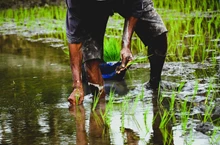
For the Arunachal Pradesh government employees, it is a time to enjoy a triple bonanza. The announcement was made by Chief Minister Pema Khandu on Wednesday.
She stated that all regular state government employees would receive a 4% increase in their dearness allowance and dearness relief, bringing the total sum from 28 to 3 per cent as of July 1 of this year, in accordance with the recommendations of the central pay commission (CPC).
HRA for Government Employees:
The state government employees will now receive House Rent Allowance (HRA) at the same rate as central government employees, he continued. Khandu also said that state doctors would begin receiving non-practicing allowances (NPA), which had been a long-standing demand of the state's medical profession.
The chief minister added that the state exchequer will have to face an additional expense of Rs 172 crore annually in order to carry out all of these plans. He did, however, emphasize that his government is prepared and able to handle the new responsibility.
"Our government operates effectively. The chief minister stated, "We have more than doubled our revenue collection in recent years, and Rs 172 crore is simply a tiny amount to be spent on the welfare of our employees, who are really the backbone of the government.
The 68,000 members of the state government who work for the chief minister also hoped for positive cooperation and diligent and sincere performance of their tasks.
4% DA Hike for Central Government Employees:
The change follows the rise in dearness allowance (DA) and dearness relief, which will benefit 69.76 lakh retirees and 41.85 lakh central government employees, by 4% beginning July 1, 2022. The additional DA and dearness relief (DR) payment is a 4% increase above the current rate of 34% of basic pay/pension.
Anurag Thakur, the minister of information and broadcasting, estimated that the total impact of DA and DR on the exchequer will be Rs 12,852.5 crore annually.
New Clarification on CGHS Bill Payment:
The Ministry of Health and Family Welfare (MoHFW) said in an Office Memorandum dated 10th November 2022 that Empanelled Hospitals under CGHS cannot generate 2 different bills for the same time of treatment. According to the MoHFW's most recent directive, empanelled hospitals cannot create two different bills—one to be paid by the recipient and the other to be submitted for payment to CGHS/Department.
The Ministry stated that any violation of these rules will be regarded seriously, and the offending hospital or hospitals will be dealt with appropriately in accordance with the terms and conditions of the MOA, including removal from the CGHS panel.
Ward assignments at hospitals with CGHS empanelled status are made in accordance with the respective basic pay level of Central Government Employees as determined by the 7th Pay Commission.
The empanelled hospitals cannot ask the beneficiary or his/her attendant to buy the medications, sundries, equipment, or accessories separately from the outside and will provide the treatment within the package rate, fixed by CGHS which includes the cost of all the items, the Health Ministry had clarified back in 2013.
Additionally, the Health Ministry has released the following instructions about treatment and billing for CGHS beneficiaries:
All prescriptions for medications written by doctors at accredited hospitals must include the generic name. Specialists at hospitals with empanelled status are not permitted to administer nutritional supplements or medications with questionable value.
The hospital's antibiotic policy must be adhered to, and care should be made to ensure the wise use of premium antibiotics, particularly anti-fungal medicines. High-end antibiotics, including antifungal drugs, ought to be used ideally on the advice of a committee set up for the purpose.
The use of IV albumin is subject to defined guidelines, which should be followed. Disposable items must be used in optimum quantity. Medical practice should only be conducted scientifically because it is a branch of science.
Investigations and therapy must be based on the differential diagnosis and provisional diagnosis made based on the patient's complaints, medical history, and documented clinical examination findings.
Repeated investigations must be either commensurate with or provide value to the treatment. Use should be made of well-established forms of therapy. Never use a procedure or medication that is being tested. If a new or updated version of a drug or procedure is used, it should be specifically prescribed for that patient due to its clear superiority to the previous version.











